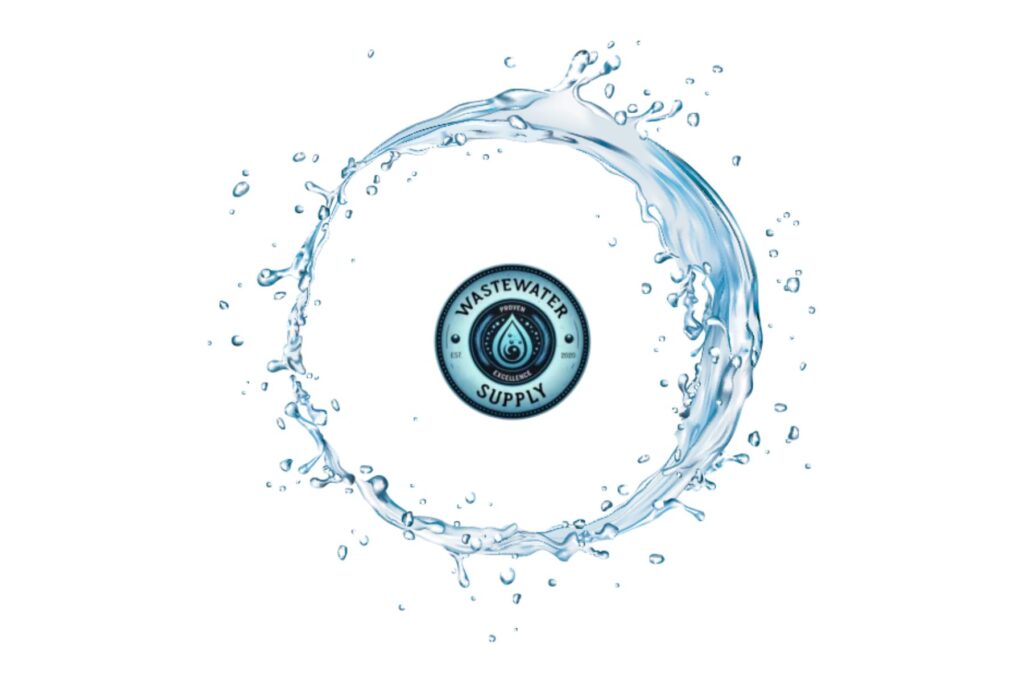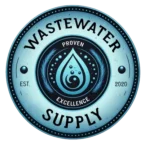Contents
1. Innovative Solutions for Wastewater Challenges
In the dynamic realm of wastewater treatment, tackling the numerous wastewater challenges efficiently requires deploying innovative solutions. As urbanization and industrialization continue to surge, so do concerns over wastewater treatment problems, including the need to manage and decrease harmful emissions. To address these challenges, it is crucial for facilities to adopt modern wastewater solutions that leverage advanced systems and cutting-edge technologies, thus ensuring effective wastewater management.
Modern wastewater solutions primarily target the elimination of contaminants, such as chemicals, from the effluent. These toxic chemicals often pose significant threats to the environment and human health, mandating the need for robust treatment solutions. With advancements in technology, the removal of these pollutants can now be executed with greater precision and efficiency.
One of the most significant challenges in wastewater management is the management of sludge, a common byproduct of treatment processes. Sludge management requires innovative strategies to both reduce its volume and convert it into reusable materials. Fortunately, advanced systems now make it possible to achieve energy efficiency in these processes, harnessing technologies that convert waste to energy, thereby reducing carbon emissions and boosting sustainability.
In manufacturing environments, where large quantities of wastewater are invariably produced, treatment solutions must be customized to address the specific chemical composition of the wastewater. Technologies enabling real-time monitoring and adaptive response have drastically improved the capability to precisely target and remove contaminants, thus diminishing the incidences of wastewater treatment problems.
Effective wastewater management isn’t just about removing contaminants; it’s about creating systems that are sustainable and economically viable. This includes investing in technologies that allow not just for treatment, but for the recycling and reuse of treated water, significantly reducing the demand on natural resources.
To sum up, overcoming wastewater challenges involves employing an array of innovative solutions that include leveraging advanced systems and pioneering technologies. Through continued investment in and application of these treatment solutions, the goal of a cleaner, more sustainable future becomes achievable. As industries and urban centers expand, the dedication to solving wastewater problems with innovative, modern wastewater solutions will play a crucial role in maintaining environmental integrity and public safety.
2. Overcoming Key Issues in Wastewater Treatment
Wastewater treatment is a crucial component of environmental sustainability, playing a vital role in ensuring that sewage and industrial effluents are managed efficiently. Over time, several challenges have emerged in the sector, necessitating innovative solutions to overcome these problems. Waste water supply systems face numerous challenges such as the reduction of pollutants, the effective removal of contaminants, and the management of odors. Let’s explore some key issues and how they can be addressed efficiently to ensure the seamless functioning of treatment plants.
One of the primary challenges in wastewater treatment is the reduction of contaminants that enter these water systems. With industries continuously discharging waste, robust wastewater management techniques are needed to minimize their environmental impact. To deal with this challenge, advanced filtration technologies and chemical treatments are required to ensure the effective removal of heavy metals and organic pollutants. Not only does this enhance water quality, but it also prioritizes human health and environmental safety.
Another significant issue is the management of sludge accumulation within treatment plants. This becomes a challenge as sludge can lead to operational disruptions if not handled effectively. Utilizing modern technologies such as anaerobic digestion or composting can aid in the reduction of sludge volumes, turning a potential problem into a resource through energy generation or soil conditioning. Such innovative approaches to sludge treatment not only improve efficiency but also contribute to the sustainability of the plants.
Finally, one of the ongoing problems within wastewater treatment is ensuring the systems’ energy efficiency, often overlooked in traditional treatment methodologies. Energy-efficient water treatment solutions are vital in reducing the overall carbon footprint. By integrating advanced systems that harness renewable energy sources like solar and wind, treatment plants can significantly cut down energy consumption. This not only addresses the energy challenge but also promotes a more sustainable future for wastewater management.
In conclusion, to effectively overcome the key issues in wastewater treatment, a comprehensive strategy that focuses on the reduction of pollutants, management of sludge, and incorporation of energy-efficient systems is required. By leveraging emerging technologies and innovative practices, we can deal with the significant problems, fostering a more sustainable and efficient wastewater management system. Such a proactive approach ensures that treatment plants not only meet current demands but are also prepared to handle future challenges that may arise in the ongoing pursuit of environmental preservation.
3. Sustainable Water Treatment Methods
In the evolving arena of wastewater treatment, pursuing sustainable water treatment methods is more crucial than ever. High energy consumption is often a stumbling block for many wastewater treatment plants, which necessitates the development and implementation of more sustainable approaches. Traditional treatment systems, while effective, come with the downside of significant power usage and carbon emissions. Minimizing these aspects is key to sustainable solutions. One of the foremost priorities for modern wastewater treatment plants is the integration of energy-efficient systems to reduce these adverse impacts. Innovative technologies like advanced oxidation processes and membrane filtration represent promising sustainable methods that tackle the problem of excessive energy consumption while maintaining or even enhancing the treatment efficiency. In addition, chemical usage in water treatment presents environmental concerns, and reducing reliance on hazardous chemicals is yet another goal for sustainable practices. By optimizing the speed and efficiency of biological treatment processes, we can lessen the dependency on chemical intervention. Furthermore, the development and utilization of variable-speed pump technology can enhance efficiency and contribute to a more sustainable wastewater treatment process by aligning energy requirements with system demand. The comprehensive supply of clean water relies significantly on the sustainable practices employed at these facilities. Implementing these methods also benefits the wastewater treatment plants economically by reducing operational costs through decreased energy consumption and chemical use. In doing so, sustainable treatment methods do not only address environmental issues but also offer economic benefits. As such, it’s imperative for stakeholders and operators to prioritize these methods and drive the evolution of the sector towards more sustainable and efficient operations. By focusing on these sustainable water treatment methods, Waste Water Supply aims to provide innovative solutions that overcome key wastewater treatment challenges while ensuring a reduced environmental footprint. There’s no doubt about it—adopting sustainable water treatment methods is not just about compliance with environmental regulations, but it’s a necessity for the future of wastewater management. By continuing to integrate and innovate within this sector, we can build a more energy-efficient and environmentally responsible framework, paving the way towards a brighter, more sustainable future for all communities reliant on these essential systems.

Advanced Systems for Energy Efficiency
In today’s rapidly evolving waste management industry, achieving energy efficiency is crucial. Advanced systems in wastewater treatment are playing an instrumental role in reducing the energy consumption associated with wastewater management. By incorporating technologies that focus on energy efficiency, wastewater treatment facilities can significantly cut down on operational costs while decreasing their carbon footprint. It’s no secret that traditional methods of wastewater treatment often result in high energy consumption, making the shift to advanced systems even more essential.
These advanced systems are designed with energy efficiency at their core, utilizing innovative approaches to minimize energy consumption. For instance, low-speed mixers can be employed to ensure that the mixing process is efficient while consuming less power. This speed reduction is crucial for maintaining optimal performance while lowering overall energy consumption. Moreover, these systems are equipped to utilize renewable energy sources, further helping facilities to achieve a sustainable treatment process.
The adoption of advanced systems not only focuses on energy efficiency but also plays a vital role in the reduction of greenhouse gases—an essential factor in mitigating climate change. By optimizing the use of energy, treatment plants can also contribute to decreasing carbon emissions. For many facilities, transitioning to these systems might initially seem daunting; however, their long-term benefits in terms of both energy consumption reduction and environmental impact are undeniable.
Waste Water Supply is committed to pushing the boundaries of wastewater treatment by integrating such advanced systems. By continually innovating in this domain, Waste Water Supply ensures that our solutions not only meet current energy efficiency standards but exceed them, setting new benchmarks for the industry. We recognize that by effectively managing energy consumption, businesses can achieve substantial cost savings and promote a more sustainable approach to wastewater management.
To stay ahead, it’s imperative for facilities to embrace the potential of advanced systems, capitalize on enhanced energy efficiency, and take proactive steps towards smarter wastewater treatment. As the industry continues to evolve, Waste Water Supply remains at the forefront in developing and implementing technology-driven systems that promise a more energy-efficient future. By doing so, we are not only enhancing the performance of wastewater management systems but also paving the way for a more sustainable and environmentally-friendly industry. Through meticulous attention to energy and power dynamics, Waste Water Supply helps navigate these challenges, bringing forth a future where wastewater treatment is both effective and sustainable.
Managing Sludge Accumulation in Treatment Processes
One of the persistent challenges in wastewater treatment is managing sludge accumulation within treatment processes. Sludge, a byproduct of wastewater treatment, requires comprehensive systems to ensure efficient management. Effective sludge management is crucial not only for maintaining the operational efficiency of wastewater treatment systems but also for ensuring the sustainability of entire treatment operations. As sludge accumulates, it can compromise the efficiency of treatment systems, leading to increased operational costs and potential environmental hazards.
Waste Water Supply recognizes that managing sludge accumulation is a critical component of wastewater treatment systems. Strategies for managing sludge accumulation encompass various treatment processes and systems designed to minimize waste and promote efficiency. These include enhanced biological sludge treatment processes that focus on reducing the volume of sludge produced, making it easier to handle and dispose of. Another method involves the utilization of advanced media in sludge treatment processes, which facilitates the breakdown of organic matter, resulting in less accumulation and hence, reduced sludge volumes.
Moreover, by integrating state-of-the-art technologies into treatment processes, Waste Water Supply ensures that the management of sludge becomes more efficient and cost-effective. These technologies often involve automated monitoring and control systems that provide real-time data on sludge levels. Such systems allow for prompt interventions to mitigate excessive accumulation, thereby optimizing the entire wastewater treatment process. Furthermore, employing effective sludge management strategies significantly reduces the environmental impact associated with traditional sludge disposal methods.
In the context of manufacturing and industrial water treatment, effectively managing sludge accumulation remains a top priority. Industries often face unique challenges due to the varied chemical composition of their waste streams. Waste Water Supply’s tailored solutions for specific manufacturing sectors recognize the complexity of these challenges and offer bespoke systems designed to handle specific sludge characteristics, ensuring the seamless operation of wastewater treatment processes.
Ultimately, the successful management of sludge accumulation within treatment processes not only addresses immediate operational concerns but also contributes to broader environmental goals. Waste Water Supply remains committed to innovating within this space, continually refining our sludge management systems to align with emerging technologies and sustainable practices. In the forthcoming segments, such as our discussion on “The Role of Technologies in Modern Wastewater Solutions,” we will explore how technological advancements further enhance sludge management in the context of modern wastewater solutions.
The Role of Technologies in Modern Wastewater Solutions
In addressing the top three challenges in wastewater treatment, technologies play an indispensable role by enhancing efficiency and effectiveness in modern wastewater solutions. At Waste Water Supply, we recognize the importance of integrating state-of-the-art technologies to combat complex wastewater issues, including those related to PFAS contaminants, aging infrastructure, and the need for energy-efficient processes. As modern wastewater solutions continue to evolve, it is imperative to adopt technologies that not only address specific challenges but also promote sustainability.
One critical technological advancement is the development of advanced mixers that optimize the treatment process, ensuring uniform distribution of microorganisms and nutrients necessary for efficient wastewater treatment. These mixers are designed to reduce energy consumption, which is a significant aspect of modern wastewater solutions. The incorporation of energy-efficient mixers not only aids in overcoming operational challenges but also contributes to reducing the carbon footprint of wastewater treatment facilities.
PFAS, or per- and polyfluoroalkyl substances, present a particularly daunting challenge in wastewater treatment due to their persistence and resistance to conventional treatment methods. Technologies such as advanced filtration systems and adsorption techniques have been pivotal in providing effective solutions to mitigate the presence of PFAS in wastewater. By employing these cutting-edge technologies, Waste Water Supply is able to offer innovative solutions that ensure harmful contaminants like PFAS are effectively removed, safeguarding public health and the environment.
Moreover, the integration of digital technologies and data analytics into wastewater systems has revolutionized how treatment processes are managed and optimized. With real-time monitoring and predictive analytics, facilities can proactively address potential issues, optimize resource usage, and enhance overall system performance. These modern wastewater solutions not only improve operational efficiency but also reduce costs and increase reliability.
In summary, the role of technologies in modern wastewater solutions cannot be overstated. From improving the efficiency of treatment processes with advanced mixers to tackling the formidable challenge of PFAS, the embrace of innovative technologies is key to overcoming the hurdles associated with wastewater treatment. At Waste Water Supply, we are committed to leveraging the latest technological advancements to provide sustainable and efficient wastewater solutions, ensuring that our clients benefit from the best services and technologies available. Through continuous innovation and adaptation, Waste Water Supply remains at the forefront of addressing complex wastewater challenges with effective solutions.
Addressing the challenges in wastewater treatment requires a multifaceted approach. By investing in advanced technologies, enhancing operational efficiencies, and fostering sustainable practices, Waste Water Supply is committed to overcoming these obstacles. Our expertise and innovative solutions are designed to ensure the reliability and effectiveness of wastewater management systems. By partnering with us, you can be assured of a proactive approach to environmental responsibility and regulatory compliance. If you need support in navigating these challenges, Waste Water Supply is ready to assist with tailored solutions that meet your specific needs.

